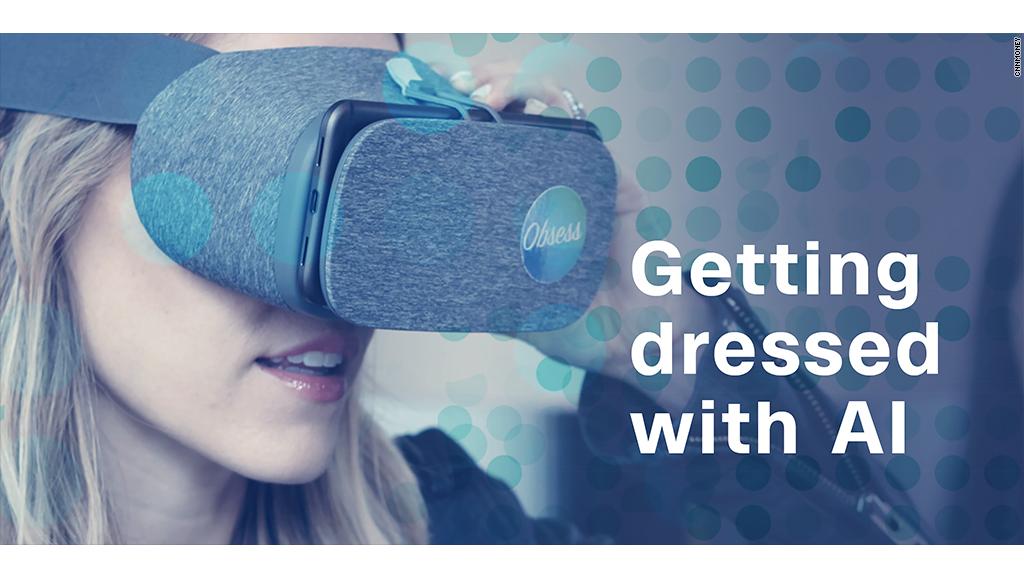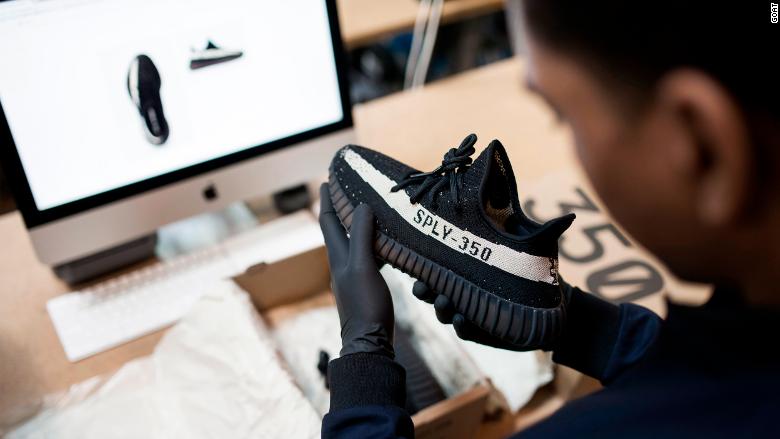
Even the best counterfeit sneakers have their tells. A pair of fake Air Jordans might use the wrong color stitching or weigh an ounce too much or too little. Sometimes, there's a different scent.
"When you smell a Nike factory shoe, it has that distinct factory smell. And when you smell a fake Nike, it has that fake artificial smell," said Eddy Lu. "If you've smelled enough sneakers, you know that smell."
Lu has smelled a lot of shoes. He is the co-founder of GOAT, a marketplace for selling and buying sneakers. Launched in 2015, the startup's goal is to make it easier to find and bid on shoes online, and harder to be duped by counterfeits. It uses image recognition and human inspectors to screen (and sniff) for fake shoes
Sneakers are a big business. Athletic footwear was a $17.5 billion industry in 2016, and resales are estimated to make up $1 billion of that market.
Secondary sales are driven by the shoe-loving subculture of "sneakerheads." Decades after Nike released its first Air Jordans, people still lineup outside of boutique shoe stores for hours to buy the latest limited edition sneakers.
They sell and trade the collectable shoes through eBay and Craigslist, on social media like Facebook and Instagram, and in real life at consignment shops or conventions like SneakerCon.
GOAT's co-founder Daishin Sugano came up with the idea for GOAT after getting stuck with a pair of fakes from eBay. He and Lu thought there could be a better way.
"The reason marketplaces sometimes suck is all the dirty work we're going to handle," said Lu.
Related: The future of getting dressed: AI, VR and smart fabrics

Some sellers are already making a good living from the marketplace, which sells through a web store and mobile apps. The company says some individual sellers made more than $2 million off the app last year.
Atlanta-based seller Ashley -- who declined to share her last name -- brought in more than $300,000 last year on GOAT. She was a grad school student with a day job when she started selling sneakers on the side. Before she moved her business to GOAT, she said she had to deal with fakes, fraud and returns, and was the victim of a major theft.
Counterfeit shoes are one of the biggest problems for the industry. GOAT's screening process has helped it get a foothold in the sneaker community because it takes the burden for detecting fakes off of buyers.
To list a pair or shoes, a seller sends in seven standardized photos. GOAT will try to authenticate that they're real, using machine learning to do a first pass on the photos and comparing them to an image database of real and fake versions.
Once a listing is up, buyers bid on shoes, similar to eBay. But instead of shipping them directly, the seller sends them to GOAT's headquarters where experts inspect each pair. They use microscopic technology to look at the shoes, weigh them and check things like the fonts.
Related: Amazon's smart mirror patent teases the future of fashion
Sellers are charged a fee, which goes up or down based on the quality of the experience. A good seller is charged 9.5% and $5 for a shipping label.
Limited edition shoes are a small market -- Lu says there's only 12 or so "hyped" models a year. To grow, the Culver City based company has moved into selling general release shoe models. It has raised $37.6 million from investors.
Around 75,000 sellers use the app, often in addition to other channels. It has around six million members, according to Lu, and around 250,000 different sneakers listed at a time.
Lu believes a lot of sneaker sellers on GOAT are young — teenagers using accounts their parents set up. Sellers of all ages have discovered a pair of shoes can be surprisingly lucrative.
"I can stockpile inventory to hold my money," Ashley said. "I buy sneakers that I know will only appreciate in value, versus spending money on useless items. When I have a need for cash, I cash out.
"Even if the sneaker is for retail, it's better than money in my bank account."

